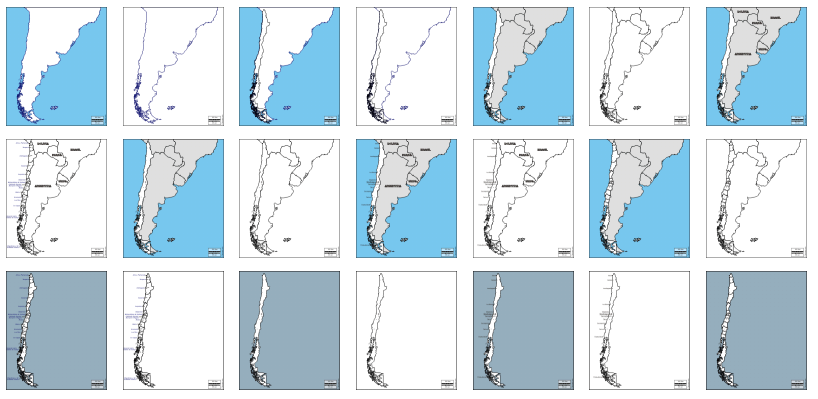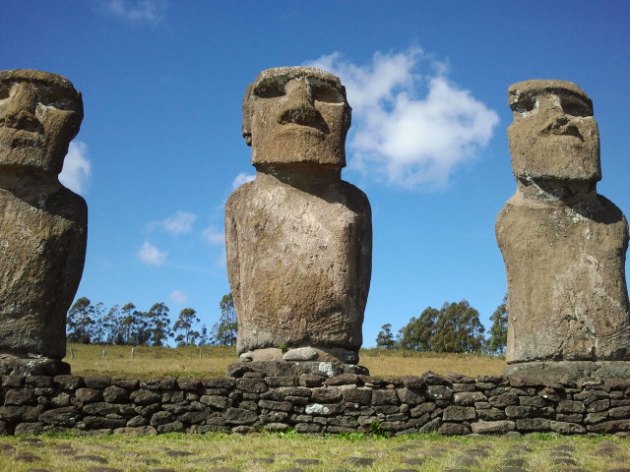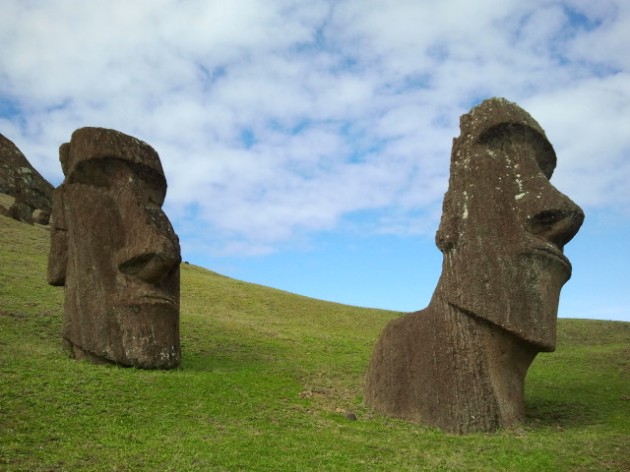Cloaking Inequity: Universal School “Choice”: Schools Ultimately Do the Choosing

I have a question for you… Can you use your finger and identify Chile on a map? I only ask because there are lots of ideas and theories in the US educational policy discourse about schools choice and what would happen if we had a universal school “choice” market. Well, we don’t actually have to imagine or theorize what a universal school choice market would look like. All we have to do is put our finger on Chile— it has been happening there for the past few decades since a dictator prioritized “choice” to reduce the government’s role in education funding. The universal school “choice” market has actually enhanced segregation and inequality instead of remedying it (See New Research: Vouchers Increase Segregation and Offer Benefits to the Few). As you might remember, we asked you the readers of Cloaking Inequity to support a student led research trip to Chile to get a better picture of the reforms that have been rumored to the Chilean privatization of education (See Sponsor a Student!: Inform Your Policymaker Why Vouchers Have Failed). To my knowledge, mainstream US media haven’t discussed the reforms being contemplated in Chile for the universal school “choice” system and the reasons for them. While the team was on the ground in Chile, this happened: Exclusive: Students Tear Gassed By Police While Protesting School “Choice”
The students are back from Chile. Unfortunately I had to cancel the ticket I bought due to my departure from the University of Texas at Austin to accept a promotion at California State University Sacramento. However, the research team has submitted a blog post for you the readers of Cloaking Inequity as a thank you for your support of the Chile research. Here is what they have to say about the new reforms in Chile.
Chile is not repealing its voucher system… not just yet anyhow.
Chileans have, however, begun an important national conversation about opportunity, segregation, and outcomes within what is essentially an unregulated market based education system. It is a system, within which, the majority of stakeholders are not happy. The competition of the open market place has not improved test scores; school choice has led to further socioeconomic segregation; and school stability is dependent on the marketplace. And yet, the idea of choice is still very popular in the country.
Chileans are in the very early stages of exploring regulatory fixes to this system that many people hope will make choice, and the voucher system, more equitable. Presently, there are three reforms they are trying to pass and implement within the next year, and they all seek to mitigate the inequities resulting from an unregulated market system that has been in place for more than three decades.
The first reform focuses on eliminating extra fees that private voucher schools charge students and families. Chile no longer wants to allow private schools to charge more than the price of the governmental voucher amount. This is widely seen as something they should have never allowed. All descriptive evidence has shown that after the government allowed these “add-on fees” school segregation, by social and economic class, grew rapidly. Although no one disputes the increase in segregation in the Chilean school system, there are debates about the cause of this segregation, and whether schools or parents are at fault for the resulting homogeneity found in schools.
The next major reform push is for the government to revoke and outlaw for-profit voucher schools. No one is really quite sure about how to make all schools “not for profit” at this point. People are angry that schools can profit from education. Secondary and university students are particularly vocal on this point. “No Más Lucro” and “Educación Gratuita” were well represented in the protests we encountered. Some have suggested for-profit schools be phased out gradually, while the government pays the difference between the voucher and the school tuition during the next several years. While others want the government to effectively “buy-out” the for profit schools.
The last reform focuses on creating a regulatory system that requires schools to follow the laws that were passed in 2009. In 2009, the Chilean legislature passed a number of laws making it illegal for primary schools to engage in the pre-selection of students. They could no longer test students, prior to enrollment, in order to weed out those that would be more difficult and costly to educate. They could also no longer engage in parent interviews prior to selection. Unfortunately, private voucher schools have not given up the practice, as there is no regulatory mechanism in place to keep them from doing so. Schools not only continue to engage in pre-selection, but do so openly, at both the primary and secondary levels. One academic we interviewed proposed that if they are going to continue with the school choice model, that the choice must be removed from the schools, and student placements should be handled by a third party municipal entity. Other powerful players are calling for “U.S. American style accountability” as a regulatory mechanism, using the country’s SIMCE test as the measure by which schools are evaluated and possibly sanctioned.
What is not prominent, presently, in the conversation is a call for strengthening the public school system through investment; instead, the conversation is heavily focused on making that market place more fair. Conversations, at the policy level, are not presently about making greater investments in students, nor the teacher labor force. Though, there is still time for these issues to become part of the conversation, and bills are currently being drafted to address these issues and bring them into fold.
Chileans like the idea of school choice; there is a long history of private schooling in the country that stretches well before Pinochet’s 1981 voucher system. However, many Chileans recognize that it is the schools that are ultimately doing the choosing, and moderate and low-income families are losing out. The volatility of the free-market education system means there is a school there one day, but not necessarily the next. Schools can fold at any time due to finances, or even the death of the founder. And there is still a great distrust that the public school system can operate well. There is extensive public relations work to be done if the public school system is to become viable for the broad population. At this time, less than 50 percent of the school-aged population attends public school in Chile.
Thank you all for your support in this important work. The reform discussion in Chile will continue and we will be following the progress closely to see how the situation unfolds in the coming months.
My thoughts. I doubt the US courts would permit a regulated voucher system in the United States that would allow the government to control what private schools charge for tuition and also outlaw for-profit schools. Since these controls wouldn’t be on the table, advantaged students would be the “winners” in the market— students with capital (such as high test scores, $, transportation means, parents who can volunteer in school) could access desired schools in a universal market. Sounds like a familiar paradigm, well, actually the one we currently live under in the United States— just with the potential to be even MORE segregative and unequal than the system we already have— as demonstrated over several decades in Chile.
For all of Cloaking Inequity’s posts on vouchers click here and charters here.
Please Facebook Like, Tweet, etc below and/or reblog.
Want to know about Cloaking Inequity’s freshly pressed conversations about educational policy? Click the “Follow blog by email” button in the upper left hand corner of this page.
Twitter: @ProfessorJVH
Click here for Vitae.
Please blame Pinochet for any typos.
p.s. Thank you to the hundreds of readers from Chile who have visited Cloaking Inequity.
p.s.s. A couple of photos that I took on Easter Island of the Moai (which is under the control of Chile) a few years ago. It is one of the most amazing places I have ever been. Please add to your bucket list.


This blog post has been shared by permission from the author.
Readers wishing to comment on the content are encouraged to do so via the link to the original post.
Find the original post here:
The views expressed by the blogger are not necessarily those of NEPC.
